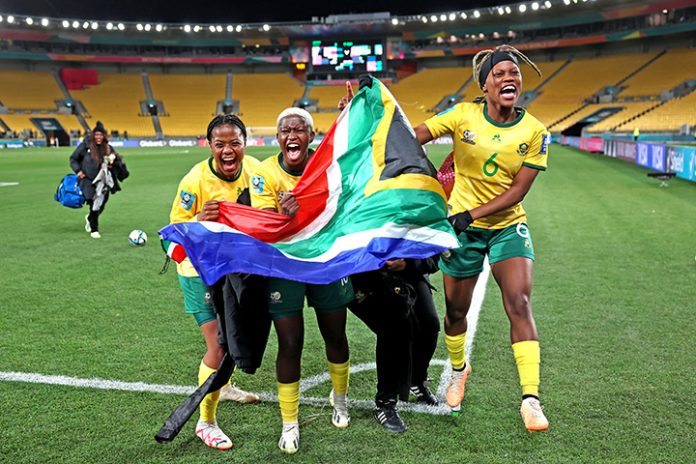Sixty-seven-years ago to this month, multitudes of South African women from all walks of life descended on the Union Buildings to protest the extension of draconian pass laws to women.
Beyond the resistance to the pass laws, these gallant women were also in essence using the march to challenge the scourge of patriarchy and affirm their humanity. The enduring legacy they have left is now visible in the gender equality policies and the relative positioning of women in the country.
However, even as we reflect on this legacy, and what it means to be a woman in South Africa, we must, unfortunately, also admit that we still have a very long way to go in the struggle for gender equality and justice. To a large extent, this reflection may be a bit discouraging as it brings to the fore the continuing challenges faced by women, including, but not limited to, the unrelenting scourge of gender-based violence and the multiple exclusions of women from economic, political and social power.
The recent debacle around the payment of World Cup appearance fees for the women national team, Banyana Banyana, is a case in point. Despite their consistent excellent performances and carrying the national flag aloft on the international scene, they continue to be subjected to abominable treatment by the hierarchy at Safa.
The reluctance to pay them allowances concomitant to their contribution to the growth and international respect for South African sport, including at a
level on par with their male counterparts, has brought into sharp focus the hypocrisy of our society. It is also a stark reminder that, despite the little progress we have made since the dawn of democracy almost three decades ago, women in South Africa still earn relatively less than men.
The situation is even more dire for black women as they remain at the bottom of the ladder regarding access to jobs, psychosocial resources and leadership roles. It is our nuanced examination of these myriad socio-political contexts that drives the transformation that we do at Unisa. Even as we celebrate 150 years of our existence, we are aware of the continuing need to centre gender equality among the pillars of our strategy.
One of the ways we are advancing this is in the adoption of Feminist/Womanist/Bosadi Theorisations as one of our 10 catalytic niche areas undertaken as a strategic focus of the University in 2021. The intention of this catalytic niche area is not only to theorise from the standpoint of women but to do so with the awareness that women-centred knowledges have been muted. As we work towards excavating these herstories, we deliberately provide access to more black women, demonstrated by the growing number of women among our staff and ensuring that of the more than 350 000 students that Unisa registers, 255 307 are women.
Indeed, as we pause to reflect on what it means to be a woman in South Africa and at Unisa, we do so also to give due recognition to the powerhouses that came before us and those that still walk through our halls – we see you!
I am personally reminded of the late Koko Potona Diphare, my father’s mmane, a rebellious woman who also marched in 1956. I invoke her fighting spirit and that of the women of 1956 and applaud South African women for following not only their passions but for harnessing their gifts so that they can continue to challenge and nurture.
I invoke the spirit of Sophie Sefefe, a young woman who was necklaced in Diepkloof in the 1980s for not adhering to the gender script forced on her by the community of small-minded people who murdered her.
I mention the names so that they don’t die twice. The stories of these women awaken us from the discouragement felt as we reflect on the continuing struggles. These stories remain an inspiration in our collective consciousness and inspire us to all find our rebelliousness – to stand up and fight when the intention is to wear us down. I write this piece to reawaken in us that light, that song that drove the women of 1956 to courage.
While the women of 1956 experienced visible divergences in their experiences, they were brought together by sometimes hidden convergences brought on by how they are positioned as women. I urge us to find those bonds that will assist us to recommit standing together in our difference. We should remain vigilant against the pushbacks that are relentlessly trying to rob us of the legacies of those courageous Women of 1956.
- Professor Khunou is the acting executive director for transformation and leadership at Unisa
Follow @SundayWorldZA on Twitter and @sundayworldza on Instagram, or like our Facebook Page, Sunday World, by clicking here for the latest breaking news in South Africa.



